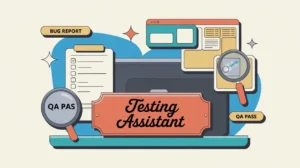What Does the Data Security Clerk Role Involve?
A data security clerk is responsible for supporting the protection of organizational data through careful record handling, basic monitoring, and adherence to security protocols. This involves maintaining accurate logs of data access, following procedures for storing and transferring information securely, assisting in incident documentation, and coordinating with IT or security teams to address issues. The role typically sits within data governance, IT, or compliance functions depending on the organization’s structure. In both nonprofits and social enterprises, data security clerks play an essential role in maintaining the integrity and confidentiality of information used across programs, operations, and research.
At What Level does this Role Operate?
Entry Level: This role typically reports to a cybersecurity officer, IT manager, or data governance lead. It focuses on supporting day-to-day data security operations and maintaining proper documentation, making it a strong entry point for individuals interested in cybersecurity and data governance.
Relative Employability: Data security clerk roles are becoming more common as nonprofits and social enterprises expand their digital operations and face increasing regulatory requirements. These positions offer accessible entry points for individuals with strong procedural discipline and an interest in cybersecurity.
Relative Pay Scale: Within nonprofits and social enterprises, data security clerk roles sit at the lower to mid range of the pay scale, reflecting their administrative nature and foundational position in security workflows.
What are the Key Responsibilities and Activities?
- Maintain accurate logs of data access, transfer, and storage activities
- Follow established security protocols for managing sensitive information
- Support the implementation of data protection policies and incident response procedures
- Assist with monitoring activities such as reviewing access logs and flagging anomalies for investigation
- Coordinate with IT, cybersecurity, and compliance teams to support security operations
- Document incidents, policy breaches, and follow-up actions as required
- Help ensure that physical and digital records meet organizational security standards
- Contribute to routine audits and data integrity checks
What Core Competencies and Qualifications are Needed?
Required Qualifications and Experience
The following reflect common qualifications and experience expected for this role, while recognizing that pathways may vary by context, organization, and region.
- Relevant academic background in information technology, cybersecurity, data management, or a related field, or equivalent administrative or technical experience
- Familiarity with basic cybersecurity principles and data protection practices
- Strong attention to detail and commitment to procedural accuracy
- Comfort working with digital systems, access logs, and documentation processes
- Willingness to learn organizational security frameworks and technologies
Key Competencies
- Accuracy and procedural discipline
- Foundational understanding of cybersecurity and data protection principles
- Record-keeping and documentation skills
- Coordination and communication with technical teams
- Integrity and reliability in handling sensitive information
- Ability to follow protocols consistently
How are AI and Automation Shaping this Role?
An AI-native data security clerk will look to AI and automation to support monitoring, logging, and incident detection. They can use AI tools to flag irregular data access patterns, automate the creation of security logs, and support basic compliance reporting. Automation can help manage routine security checks, document workflows, and detect anomalies faster than manual review. By integrating AI thoughtfully, data security clerks can increase both the efficiency and reliability of their contributions to organizational security.
What Career Pathways and Transferable Skills are Associated with this Role?
Data security clerk roles can lead to positions such as cybersecurity officer, IT security analyst, data governance associate, or compliance specialist. The skills developed in record keeping, procedural accuracy, and basic security monitoring are transferable across nonprofits, social enterprises, corporations, educational institutions, and government agencies. Many professionals in cybersecurity and data governance begin in clerk roles, where they build foundational expertise that supports progression into more technical or strategic positions.







